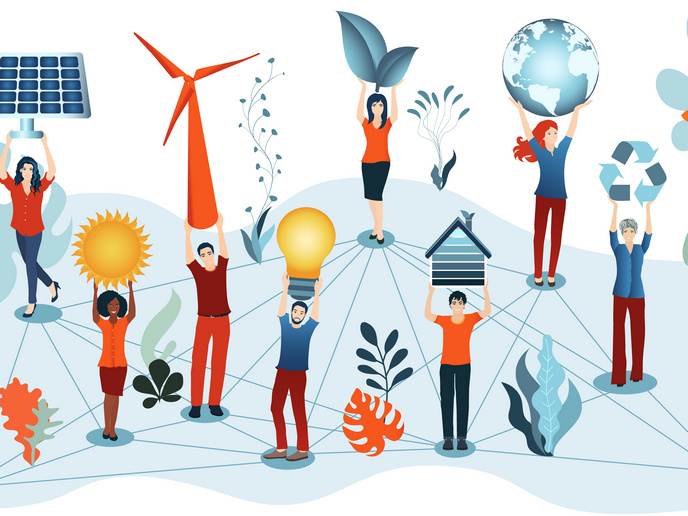Guiding energy communities towards inclusivity
The EU-funded SCCALE 203050(opens in new window) project has produced a guidebook(opens in new window) to show energy communities the way to becoming as inclusive as possible. The ultimate goal is to help create energy communities in which inclusion is so ingrained that any discussion of it becomes meaningless. Although energy communities have the potential to counter some of the injustices of the current fossil fuel-based energy system by organising it based on social, democratic and ecological principles, they are currently struggling to become more accessible to broader society. The inclusivity guide addresses this problem by offering tips and tools to help these communities share the benefits and costs of the energy transition more fairly with everyone, pay better attention to different views and values, and benefit from more inclusive decision-making. The guidebook describes inclusion as “when all people are valued and able to participate and contribute to their fullest without any discrimination based on their gender, sexual orientation, social class, political beliefs, race, ethnicity, nationality, religion, age, and / or disability.” It further states: “Inclusion is about ensuring that diversity of knowledge, perspectives, information, and ideas are welcomed and being used. What’s more, inclusion is focused on fostering the structure, system, processes, culture, behaviour, and mindset that embrace and respect all people in all their diversity.”
Identifying the problem
The guide starts off by providing suggestions on how to map and analyse the problem. These include conducting a gender, intersectional analysis of the community, beginning with collecting data and identifying potential differences and the underlying causes of inequalities. It also provides tips for performing gender self-assessments to see if gender perspectives are sufficiently integrated into an organisation’s work. A gender audit is then proposed “to ensure that all the necessary gender mainstreaming activities are in place.”
Taking action
Once the problem has been identified, an action plan is needed to take corrective and preventive measures. Readers are given guidance on how to develop a gender action plan (GAP), a valuable tool for proposing “strategies that will help to mainstream gender or put gender as a cross-cutting aspect with other goals.” According to the inclusivity guide, “a GAP should provide concrete targets, strategies and (budgeted) activities to achieve gender mainstreaming” and “can be connected to or integrated in an organisation’s strategic or annual plans.” The guide also highlights the importance of using gender-neutral and gender-sensitive language to reduce stereotypes and promote inclusion in energy communities. It also provides tips and tools to further community engagement through inclusive resources, workshops, meetings, and special training focusing on inclusion and (self-)empowerment. It goes on to offer valuable guidance on how to build inclusive organisations and create partnerships to ensure the empowerment of people from diverse backgrounds. Last but not least, it highlights important considerations when developing inclusive community energy projects. SCCALE 203050 (Sustainable Collective Citizen Action for a Local Europe 20-30-50) invites citizens to get involved(opens in new window) and become part of the energy transition, offering different tools(opens in new window) and resources(opens in new window) to guide them through the process. The project ends in November 2024. For more information, please see: SCCALE 203050 project website(opens in new window)



